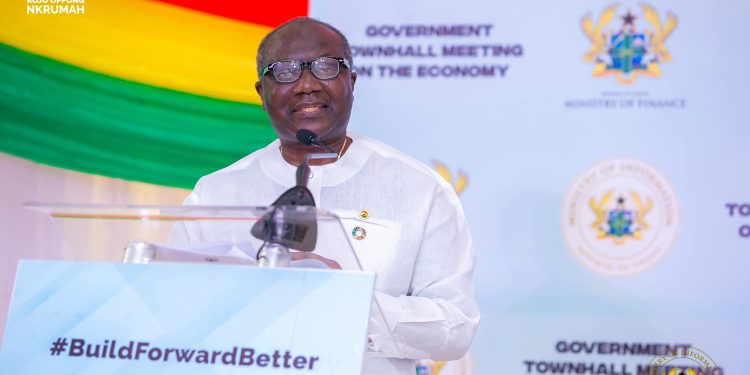Mr. Ken Ofori-Atta, Minister of Finance, has proposed a declaration on Special Drawing Right (SDR) to ensure that African countries use SDR as a resource mobilization tool to develop the continent.
The Finance Minister, who is also the Chairperson of the AfDB Board of Governors, made this known at the Annual General Meeting (AGM) of the African Development Bank (AfDB).
According to him, it would be more impactful if a clear agenda and modalities are put in place for governors to lobby for SDR.
“Maybe we should do something like an Accra declaration which will then make it clear where we will bring it to the board of governors during this week in which we identify the methodology to go to the market to lobby five to 10 countries” he said.
Madam Vicky Ford, Governor and Deputy Director of Foreign, Commonwealth, and Development Office of the UK, stated that the UK as President of the G7 has championed the largest global allocation of International Monetary Fund (IMF) of SDR 650 billion to support countries’ responses to the COVID-19 pandemic.
“Last July when the leaders of G7 came to the UK, they also agreed on a global ambition to channel $100 billion of these new SDR towards lower-income countries. We have committed a billion of those SDR into IMF poverty reduction growth Trust that is offering concessional finance to eligible lower-income countries including 39 African countries.”
Advanced Possibilities
Madam Vicky Ford iterated calls for other advanced economies yet to channel part of their new SDR allocation to do so, adding that the UK was actively exploring the possibilities of channeling SDR through the multilateral development banks including the AfDB.
The AfDB, she noted, is an important partner of the UK as it seeks to implement an international development strategy that focuses on educating girls, mobilizing investment in infrastructure, responding to humanitarian crises, and responding to global crises such as climate change.
While welcoming efforts of the AfDB to develop options for these SDRs, she said the viability of these options would require partners to design mechanisms that would make legal requirements for maintaining the reserve asset status of SDRs while ensuring that they have the largest possible impact on the bank’s lending capacity.
“To meet the legal requirement, we can’t channel those SDR into the development bank by ourselves. We need a group of countries to come together.”
Raising Capital
Mr. Amadou Hott, Senegal’s Minister of Economy, Planning, and International Cooperation noted that raising capital through SDR and other innovative means is crucial for Africa to accelerate its development.
Mr. Amadou Hott, averred that allocation of SDR, which he described as a reserve of last resort has shown that there is almost zero cost for developed countries to help developing countries.
“We cannot do small things every year and take 100 years to do something we should do in 10 years’ time. At this current pace, we will be here in 30 years’ time talking about the same thing”.
Nicolas Kazadi, Minister of Finance for the Democratic Republic of Congo, noted that most commitments of international communities are hardly fulfilled and for that matter, SDR presented an opportunity to address climate challenges.
Meanwhile, the SDR is an international reserve asset created by the IMF in 1969 to supplement its member countries’ official reserves. Its value is based on a basket of five currencies— the U.S. dollar, the euro, the Chinese renminbi, the Japanese yen, and the British pound sterling.




Comments are closed.